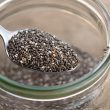Your body needs a proper amount of nutrients to function at its best—one of which is omega 3. One of the strongest sources of this vital nutrient is fish oil supplement. With sufficient addition of this nutrition, you can experience better health and even stay safe from certain diseases.
That said, sometimes it’s hard to keep track of everything related to a certain supplement. You may make mistakes taking fish oil, as most people do. This can lead to certain misunderstandings about it and keep people from utilizing fish oil. A treasure trove of health benefits, fish oil is an important dietary addition for all ages, and using it correctly is the key to getting all those benefits.
Table of Contents
Top Mistakes Of Using Fish Oil Supplements
If you’re unsure whether or not you’re using fish oil in an ideal way, no worries! When it comes to selecting supplements, there are a few common errors that people tend to make. Read on.
Trying to treat health conditions with fish oil supplements.
Not paying attention to a well-balanced diet because you’re taking fish oil is NOT a good best approach. Omega 3 is undeniably amazing, offering a multitude of positive effects on various aspects of your health, including your heart, respiratory system, bones, joints, hair, and skin. However, it’s important to remember that it’s not a magical cure-all.
You still need to take prescribed medication for any health issues. Additionally, you need to maintain a proper diet while incorporating exercise into your routine.
Also, it is worth noting that there’s no such thing as a “quick fix” when it comes to fish oil. It takes time for the omega 3 fatty acids within your fish oil capsules to incorporate into your system and bring about a change. Some individuals may notice a difference within a few weeks, while clinical effects become to most people after around 3 months.
That’s not all; studies show that those who regularly use fish oil experience balanced benefits for up to a year—after which they reach a plateau. In other words, if you’ve seen improvements within three months of using fish oil, expect even better results when you reach the one-year mark.
Not seeking healthcare guidance when on other medication.
When taking any medication, particularly for a chronic condition, it is important to consult your physician before adding omega 3 to your routine.
Certain medications can have negative interactions with other medications or even supplements. Even adding the smallest dosage of omega 3 to your dietary routine without understanding your current medication is risky. You can always look up possible drug interactions of your medicine on the internet. However, to stay safe, go for a professional healthcare consultation.
It is also important to understand potential interactions when combining different supplements. For instance, if you take fish oil supplements that contain vitamins such as Vitamin A, using them with a multivitamin can have an adverse impact on health. Talk to your doctor about balancing out the amount of omega 3 and other vitamins you are taking.
Taking excessive fish oil supplements aiming for a ‘better’ effect.
Excessive fish oil consumption does not increase the benefits! Instead, you may experience the opposite effect. Too much fish oil or a stronger dosage of EPA and DHA fatty acids in fish oil can result in digestive problems. You may also find it harder to control blood sugar levels and reduce weight if you start out taking fish oil to manage those aspects.
It’s essential for you to understand higher quantities can affect the effect of any dietary supplement. Also, taking fish oil according to your age, BMI, and health conditions is necessary to experience the maximum benefits.
Omega 3 is generally safe when taken in the recommended dosage for a healthy adult—which is 200-500mg of EPA and DHA fatty acids combined per day.
Using fish oil without checking rancidity/expiration dates.
Every bottle of fish oil supplement you find will have an expiration date, and going past it is out of the question if you want to avoid severe side effects. That said, while It’s crucial to take fish oil within its expiration dates, it’s not the only marker of ‘freshness’.
Oxidation occurs once you open a bottle and expose the oil to oxygen. Its rancidity begins from there on, occurring at different paces depending on use and storage. Thus, you need to check the smell and taste of your fish oil to make sure it is safe.
If you don’t use your fish oil as frequently, which is especially the case for parents who give fish oil to their children occasionally, the bottle may last longer. However, this can be detrimental to your and your loved ones’ health. If the oil feels unpleasantly fishy, it’s time to get a new bottle. In hotter climates, fish oil usually tends to expire faster. Experts recommend using up a bottle of fish oil within 5-6 weeks after opening it.
Choosing cheaper products over high-quality fish oil supplements.
Another mistake people make when taking fish oil is taking poor-quality fish oil. As a result, they face immense negative health effects—and are led to believe that all fish oil is bad. If you want to ensure that you’re getting the best quality fish oil supplement, look for brands that prioritize both in-house and third-party testing. Different product tests detect purity and contaminants.
Choose a fish oil supplement brand that tests to refined levels of mercury, PCBs, and dioxins. All food products have minute levels of harmful substances—the key word being ‘minute. Your fish oils should have no detectable levels of harmful substances as confirmed via third-party testing. Only then you can be confident in the quality of the fish oil you’re purchasing.
Additionally, be wary of brands that use flavoring to mask any unpleasant smells. Check for peroxide levels (current oxidation levels) and anisidine values (past oxidation levels) to be certain that you’re getting a fresh and high-quality fish oil supplement.
Bottom Line: Taking Fish Oil The Smart Way!
Omega 3 Fish oil has gained immense popularity and can now be found as supplements by various brands. Don’t let the surging competition get to you; shop only for safe products and use wisely. By following the guidelines above, you can maintain the safety and efficacy of your fish oil supplements.

















